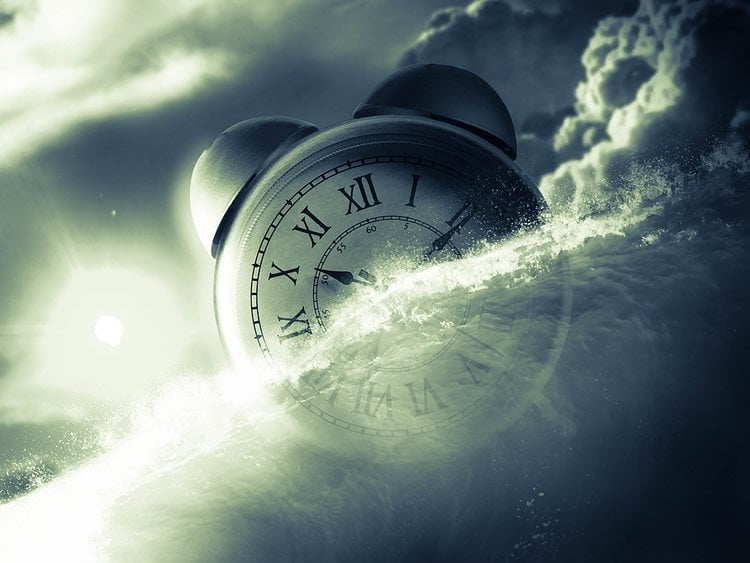Summary: A new sleep study reveals people who have suffered a stroke take longer to fall asleep and have reduced sleep efficiency compared to those who had no history of stroke.
Source: University of Surrey.
Stroke patients experience sustained problems with insomnia potentially reducing their ability to relearn key skills and putting them at increased risk of depression, a new study in the journal Scientific Reports finds.
In the first study of its kind, researchers from the University of Surrey, University of Freiburg, Germany, and the University of Bern, Switzerland, conducted an in depth sleep laboratory experiment to compare the brain signals of patients in the chronic state (at least one year post-stroke) and the general population.
Difficulties with sleeping in those who had a stroke have long been reported but little is known about the brain signals underlying poor sleep, in particular when patients are back in the community. It is also unclear how sleeping poorly during the night relates to sleepiness and fatigue during the day.
Using a polysomnogram (PSG) test, which assesses the brains’ sleeping patterns over two nights, researchers found that it took stroke patients longer to fall asleep and that they had poorer sleep efficiency – the ratio of time spent asleep comparted to the time spent in bed – than those who had not experienced a stroke.
A multiple sleep latency test (MSLT), also showed that stroke patients were less likely to nap or fall asleep during the day to compensate for lost sleep at night. They were, however, more prone to errors in a vigilance test than their counterparts, increasing their risk of cognitive failures or falls.
Importantly researchers found that although sleep efficiency was reduced in patients, total sleep time between the groups was similar, suggesting that lesions in the brains’ centres for sleep-wake regulation are unlikely to cause the insomnia. Rather researchers believe that sleep problems experienced by stroke patients are due to a number of contributory factors, such as greater psychological strain, pain and discomfort as well as reduced levels of physical activity.

Annette Sterr, Professor of Cognitive Neuroscience and Neuropsychology at the University of Surrey, said:
“Our research shows that those who have suffered from stroke maintain difficulties with their sleep which is likely to affect the overall recovery and quality of life. The importance of sleep in aiding the recovery of patients should not be underestimated in helping to improve and maintain physical and mental wellbeing.
“Presently sleep is not considered in the NICE guidelines for stroke rehabilitation, an issue we hope will be revisited by the organisation in due course. Harnessing the power of good sleep is likely to maximise recovery and quality of life”.
Source: Natasha Meredith – University of Surrey
Publisher: Organized by NeuroscienceNews.com.
Image Source: NeuroscienceNews.com image is credited to Nick Romanenko / University of Surrey.
Original Research: Open access research for “Post-stroke insomnia in community-dwelling patients with chronic motor stroke: Physiological evidence and implications for stroke care” by A. Sterr, M. Kuhn, C. Nissen, D. Ettine, S. Funk, B. Feige, R. Umarova, H. Urbach, C. Weiller & D. Riemann in Scientific Reports. Published May 30 2018.
doi:10.1038/s41598-018-26630-y
[cbtabs][cbtab title=”MLA”]University of Surrey “Insomnia is a Likely Long Term Side Effect of Stroke.” NeuroscienceNews. NeuroscienceNews, 30 May 2018.
<https://neurosciencenews.com/stroke-insomnia-9181/>.[/cbtab][cbtab title=”APA”]University of Surrey (2018, May 30). Insomnia is a Likely Long Term Side Effect of Stroke. NeuroscienceNews. Retrieved May 30, 2018 from https://neurosciencenews.com/stroke-insomnia-9181/[/cbtab][cbtab title=”Chicago”]University of Surrey “Insomnia is a Likely Long Term Side Effect of Stroke.” https://neurosciencenews.com/stroke-insomnia-9181/ (accessed May 30, 2018).[/cbtab][/cbtabs]
Abstract
Post-stroke insomnia in community-dwelling patients with chronic motor stroke: Physiological evidence and implications for stroke care
Questionnaire studies suggest that stroke patients experience sustained problems with sleep and daytime sleepiness, but physiological sleep studies focussing specifically on the chronic phase of stroke are lacking. Here we report for the first time physiological data of sleep and daytime sleepiness obtained through the two gold-standard methods, nocturnal polysomnography and the Multiple Sleep Latency Test. Data from community-dwelling patients with chronic right-hemispheric stroke (>12 months) were compared to sex- and age-matched controls. Behavioural and physiological measures suggested that stroke patients had poorer sleep with longer sleep latencies and lower sleep efficiency. Patients further spent more time awake during the night, and showed greater high-frequency power during nonREM sleep than controls. At the same time the Multiple Sleep Latency Test revealed greater wake efficiency in patients than controls. Importantly these findings were not due to group differences in sleep disordered breathing or periodic limb movements. Post-stroke insomnia is presently not adequately addressed within the care pathway for stroke. A holistic approach to rehabilitation and care provision, that includes targeted sleep interventions, is likely to enhance long-term outcome and quality of live in those living with chronic deficits after stroke.






